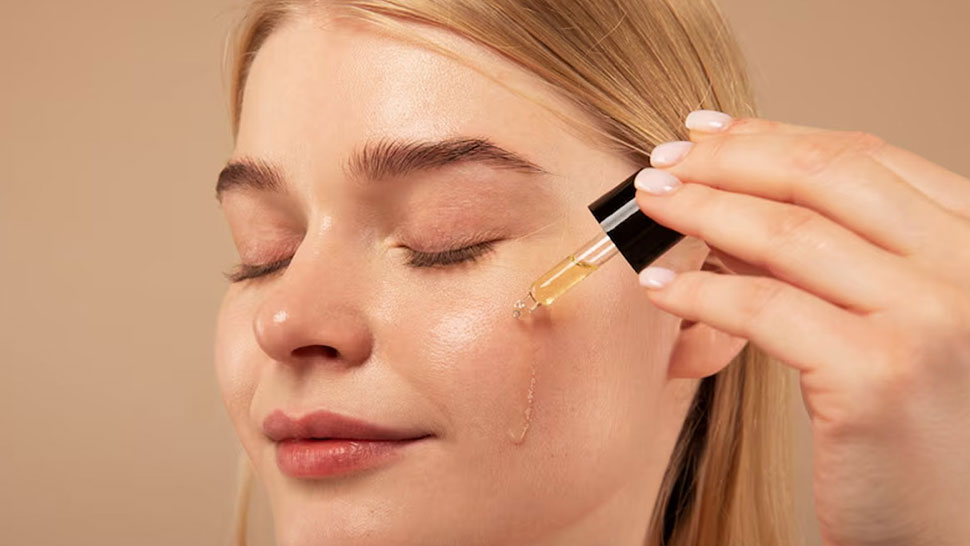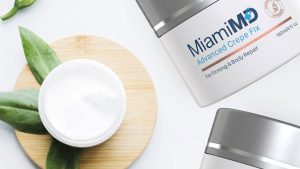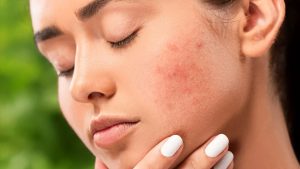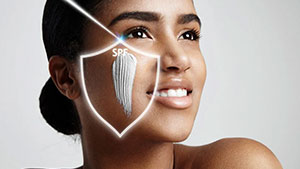Does Vitamin C Help With Dark Circles?

Nearly everyone has dealt with dark circles at some point. You may have noticed them after a sleepless night, during a stressful week, or as a permanent feature of your skin. These under-eye shadows are a common skincare concern.
While concealers and quick fixes might help temporarily, they don’t address the real cause of the problem. Many people wonder if skincare products, particularly those with vitamin C, can actually reduce dark circles in the long run.
The short answer is yes. Vitamin C is widely known for its brightening and rejuvenating properties, and it can play a significant role in reducing the appearance of dark circles under your eyes.
So, how does it work? To understand this, we need to explore what causes dark circles in the first place and how vitamin C for under eyes addresses these underlying issues.
What Are Dark Circles?
Before we dive into solutions, it’s important to understand what dark circles actually are. Dark circles refer to discoloration or shadowy areas that appear under the eyes. While they’re not harmful, they can be frustrating and often make people look tired or older than they are.
Dark circles can manifest in different ways for different people. For some, it’s a bluish tint caused by visible blood vessels under the thin skin of the eyes. For others, it’s more of a brownish hue related to pigment changes in the skin.
What Causes Dark Circles?
Dark circles don’t have a one-size-fits-all explanation since they can stem from various factors. From genetics to lifestyle habits, the reasons behind those pesky under-eye shadows can vary widely from person to person.
Understanding the real cause is essential because it determines the most effective way to treat them. Here, we’ll break down the most common causes:
Genetics
Sometimes, dark circles are simply a matter of genetics. If you’ve inherited thinner under-eye skin or a predisposition to hyperpigmentation, you may be more likely to experience this issue.
Dr. Emily Carter, a board-certified dermatologist, explains, “Genetics play a huge role in under-eye concerns. If your parents or grandparents had prominent dark circles, you’re more likely to develop them too” (1).
Unfortunately, genetic factors are difficult to change, but understanding this cause can help you focus on managing the condition rather than trying to “fix” it entirely.
Aging
As we age, our skin naturally loses collagen and becomes thinner. This means the blood vessels under your eyes become more visible, giving that bluish or purplish tint we often associate with dark circles.
Also, the skin’s ability to retain moisture diminishes over time, making the area appear dull and tired. Combined with a loss of fat and elasticity, these changes can create hollows and shadows that make dark circles more prominent.
Pigmentation Issues
Hyperpigmentation, or excess melanin production in the skin, is another common cause of dark circles. This is more prevalent in individuals with darker skin tones, as they are more prone to uneven pigmentation.
Sun exposure can also worsen pigmentation issues around the eyes, making the area appear darker. Treating hyperpigmentation requires a combination of sun protection and targeted skincare ingredients to help even out the skin tone.
Lifestyle Factors
Your lifestyle can have a major impact on the appearance of dark circles. Lack of sleep, stress, dehydration, and excessive alcohol consumption can all exacerbate the problem. Poor habits like excessive screen time or not drinking enough water can also contribute to puffiness and discoloration under the eyes.
Making small changes to your daily routine can go a long way in preventing these lifestyle-related causes of dark circles.
Medical Conditions
Sometimes, dark circles are a symptom of an underlying medical condition. Allergies, for instance, can cause puffiness and swelling around the eyes, leading to shadows. Chronic sinus congestion can also worsen the discoloration by increasing pressure on the blood vessels under the eyes.
Conditions like anemia, which causes a pale complexion and reduced oxygen levels in the blood, can also make the area under the eyes appear darker. Addressing these medical concerns with the help of a healthcare provider can often reduce the severity of dark circles.
How Does Vitamin C Help With Dark Circles?
Vitamin C is one of the most powerful ingredients in skincare and one of the best ingredients for dark circles, and it’s easy to see why. Known for its skin brightening and rejuvenating properties, this antioxidant addresses dark circles on multiple levels.
Whether your dark circles are caused by pigmentation, thinning skin, or poor circulation, vitamin C targets these underlying issues at their source.
Unlike quick fixes that only mask the problem, vitamin C goes deeper for under-eye brightening. It addresses the underlying causes of dark circles, providing a more lasting solution. The result is brighter, healthier-looking skin over time.
Here’s how it works:
Supports Proper Melanin Levels
One of vitamin C’s primary benefits is its ability to support balanced melanin production and combat the look of an uneven skin tone.
Dr. Angela Richardson, a skincare scientist, notes, “When it comes to hyperpigmentation, vitamin C is one of the most effective ingredients we have. It helps even out skin tone by targeting excess melanin without causing irritation” (2).
This makes vitamin C particularly effective for those whose dark circles are caused by pigmentation issues.
Supports Blood Vessel Walls
Vitamin C also supports the delicate blood vessels under your eyes. By boosting blood flow and reducing the pooling of blood under the skin, vitamin C can help minimize the bluish or purplish tint associated with vascular dark circles.
Dr. Sarah Collins, a dermatologist, explains, “If your dark circles are caused by visible blood vessels, vitamin C can improve circulation and reduce the appearance of discoloration by strengthening capillaries” (3).
Supports Under-Eye Thickness
Another key benefit of vitamin C is its ability to support collagen production and aid with thin under-eye skin. Collagen is essential for keeping the skin firm and plump, since under-eye skin is naturally thinner than the rest of your face.
By thickening the skin in this area, vitamin C makes blood vessels less visible and reduces the overall appearance of dark circles or tired-looking eyes.
Over time, this thinning can make blood vessels more prominent, leading to a darker, shadowed appearance. By stimulating collagen synthesis, vitamin C helps to thicken and strengthen the delicate under-eye area. This reduces the visibility of blood vessels and improves the skin’s resilience, making it less prone to damage and discoloration.
Where Can You Find Vitamin C?
Now that we understand how vitamin C works to combat dark circles, the next step is knowing where to find it. This powerful antioxidant can be incorporated into your routine through topical products and dietary intake.
Both methods play a crucial role in delivering vitamin C to your body. But they work in slightly different ways to benefit your skin. Let’s explore how each source contributes to healthier, brighter under-eye skin.
Topical Products
One of the most effective ways to target dark circles is through Vitamin C-infused skincare products. Look for serums, creams, or eye treatments specifically formulated with stabilized forms of Vitamin C, such as L-ascorbic acid or sodium ascorbyl phosphate, which are known for their potency and stability.
Miami MD’s Dark Spot Corrector, for example, is a great option for anyone looking to incorporate vitamin C into their routine. Designed to brighten and even out the skin tone, this product can help reduce the appearance of dark circles when applied consistently.
Dr. Manjula Jegasothy, the founder of Miami MD, explains, “Topical vitamin C is a game-changer for under-eye care. It delivers targeted benefits directly to the skin, helping to brighten, firm, and hydrate the area.”
Certain Foods
In addition to topical treatments, consuming vitamin C-rich foods can also benefit your skin from the inside out. Foods like oranges, lemons, strawberries, kiwis, and bell peppers are all excellent sources of vitamin C.
While dietary vitamin C alone won’t completely eliminate dark circles, it can support overall skin health and collagen production.
Dr. Emily Carter adds, “A balanced diet rich in antioxidants like vitamin C can improve skin tone and texture over time. It’s always a good idea to nourish your skin from within as well as externally” (4).
Final Thoughts
So, does vitamin C help with dark circles? Absolutely.
By targeting key causes like pigmentation, poor circulation, and thinning skin, vitamin C offers a multi-faceted approach to reducing the appearance of under-eye discoloration. Whether you’re dealing with genetic dark circles or those caused by lifestyle factors, incorporating a high-quality vitamin C product into your routine can make a noticeable difference over time.
To get the best results, consistency is key. Pair a vitamin C serum or cream with other healthy habits, like getting enough sleep, staying hydrated, and protecting your skin from the sun.
If you’re ready to give vitamin C a try, consider adding the Miami MD Dark Spot Corrector to your skincare arsenal. It’s a powerful, dermatologist-recommended formula designed to brighten your skin and help you feel more confident.
Remember, dark circles don’t have to be permanent. With the right ingredients and a little patience, you can brighten your under-eye area and achieve a more rested, youthful appearance.
Sources:
1. Cleveland Clinic. “Aging, genetics, fatigue, and more can all cause dark circles under your eyes.”
https://my.clevelandclinic.org/health/symptoms/23128-dark-circles-under-eyes
2. PubMed. “Efficacy of topical vitamin C in melasma and photoaging.”
https://pubmed.ncbi.nlm.nih.gov/37128827/
3. VUMC News. “Vitamin C protects blood vessel lining.”
https://news.vumc.org/2015/09/04/vitamin-c-blood-vessel-lining/
4. Medical News Today. “What to know about antioxidants for skin.”
https://www.medicalnewstoday.com/articles/antioxidants-for-skin





